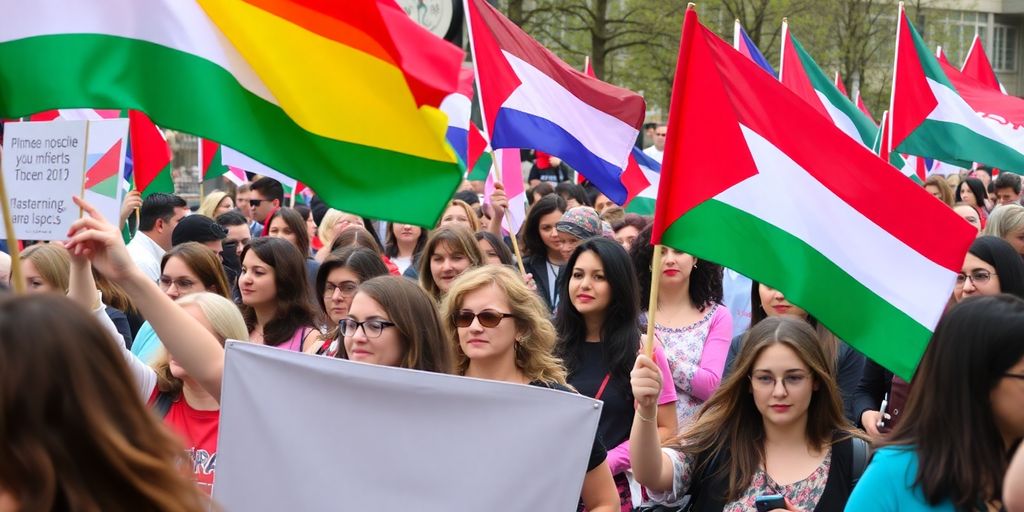On March 8, 2023, Prishtina, Kosovo, hosted its annual Women’s Day march, which became a focal point of controversy as only transgender and Palestine flags were prominently displayed. Critics accused leftist activists of hijacking the event, overshadowing the traditional themes of women’s rights and empowerment.
Key Takeaways
- The march featured only transgender and Palestine flags, sparking debate.
- Critics claim the event was co-opted by leftist activists.
- Organizers emphasized a broader agenda against patriarchy, capitalism, and fascism.
Background of the Event
The Women’s Day march in Prishtina is an annual event that celebrates women’s rights and advocates for gender equality. Traditionally, it serves as a platform for various women’s issues, including violence against women, reproductive rights, and economic equality. However, this year’s event took a different turn, focusing heavily on leftist political themes.
Flags and Symbols
During the march, the only flags displayed were those representing the transgender community and Palestine. This choice of symbols led to mixed reactions:
- Supporters argued that the inclusion of these flags highlights the intersectionality of struggles faced by marginalized groups.
- Critics contended that the focus on these issues detracted from the core message of Women’s Day, which is to advocate for women’s rights specifically.
The Atmosphere of the March
The atmosphere at the march was charged with energy, as participants sang socialist and pro-Palestinian songs. The organizers stated that their aim was to march against:
- Patriarchal police
- Capitalism
- Fascism
This broader agenda was met with both enthusiasm and skepticism from attendees, with some feeling that the event had strayed from its original purpose.
Reactions from the Community
The community’s response to the event has been polarized:
- Supporters of the March: Many attendees expressed their support for the inclusion of diverse issues, arguing that feminism should encompass all forms of oppression.
- Critics: Others voiced concerns that the event had been overtaken by political agendas, diluting the focus on women’s rights and issues that directly affect women in Kosovo.
Conclusion
The Women’s Day march in Prishtina this year has sparked significant debate about the direction of feminist movements and the inclusion of broader political issues. As discussions continue, it remains to be seen how future events will balance the celebration of women’s rights with the advocacy for other marginalized communities. The event serves as a reminder of the complexities within social movements and the diverse perspectives that exist within them.





![A Nation Mourns: Thousands Bid Farewell to Folk Legend Halid Beslic Thousands mourn folk legend [Halid Beslic] at his funeral.](https://balkaneu.com/wp-content/uploads/2025/10/d4a6f2dfthumbnail-324x160.jpeg)
